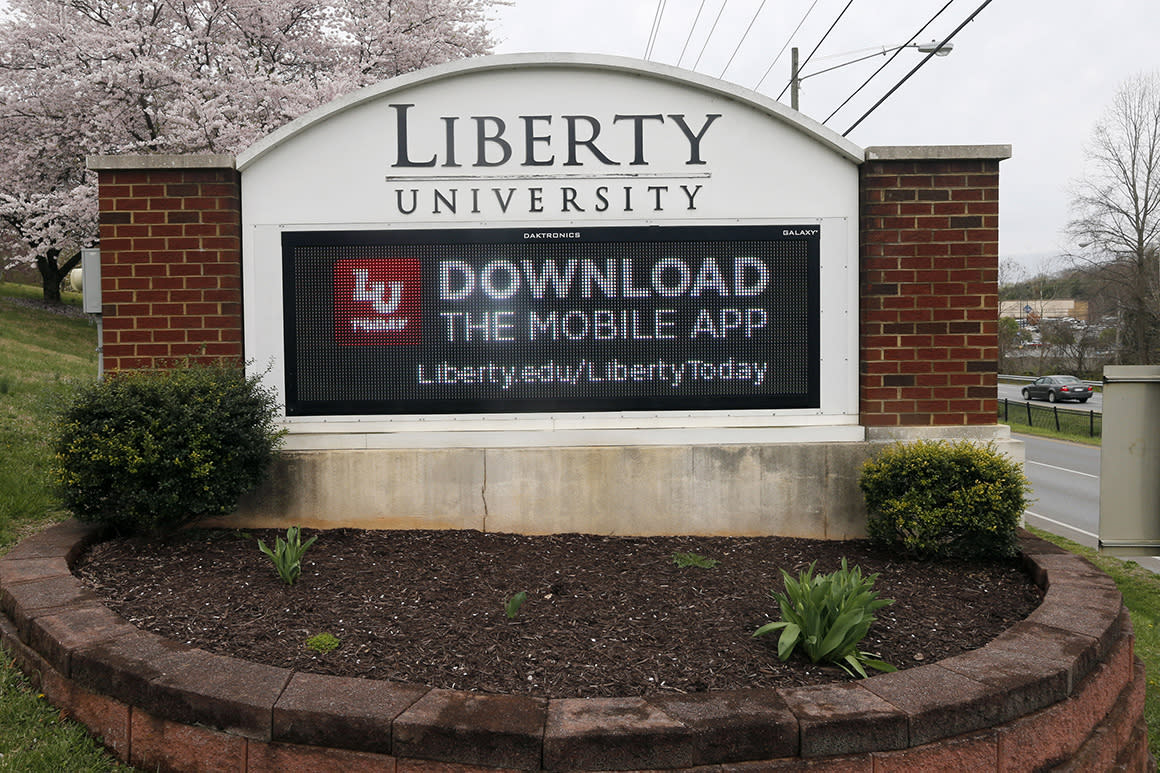Student sues Liberty University for refusing to refund fees amid pandemic

Liberty University breached contracts with its students and profited from the pandemic by refusing to refund fees for campus services scrapped when the Covid-19 outbreak hit, an unnamed student has alleged in a federal class action lawsuit against the prominent Christian school.
The lawsuit stands to ratchet up attention first prompted by Liberty President Jerry Falwell Jr.’s decision to welcome students back to campus last month for online learning, while the virus continued to kill and sicken growing numbers of Americans.
The complaint, filed Monday in U.S. District Court for the Western District of Virginia, adds to a trickle of lawsuits demanding compensation from schools that also have halted in-person classes and activities to combat the virus. Drexel University and University of Miami students sued their schools for refunds last week, in separate federal class action lawsuits.
At Liberty, the lawsuit claims the school refused to refund unused portions of fees despite ending on-campus services and activities for the rest of the semester. The lawsuit further alleges that any refunds offered to students have been a “mere fraction” of what the school actually owes. The school offered a $1,000 credit to students who didn’t return to campus residence halls, the lawsuit said.
“Liberty University is, in a very real sense, profiting from the COVID-19 pandemic — keeping its campus and campus services ‘open’ as a pretext to retain Plaintiff’s and the other Class members’ room, board, and campus fees, despite no longer having to incur the full cost of providing those services, all the while putting students’ finances and health at risk,” the lawsuit alleged.
The complaint said it does not “presently include tuition costs” and asks a judge to certify the lawsuit’s class action status and award an unspecified amount of damages.
It also says the plaintiff is unnamed because of “a legitimate fear of retaliation and harassment, both from Liberty and its supporters, for proceeding with this claim”— including expulsion.
In a statement, the Lynchburg, Va., university said the lawsuit lacked legal merit.
“While it’s not surprising that plaintiff class action attorneys would seek to profit from a public health crisis, we don’t believe this law firm or its single client speaks for the vast majority of our students,” Liberty said. “Similar class-action suits are pending against other schools, and such claims will no doubt be made against other higher education institutions that changed how they operate and deliver services to students in the face of COVID-19.”
The suit lists seven lawyers from three firms in Charlottesville, Va., and Chicago representing the unnamed student and the proposed class action.
Falwell called reports of the campus reopening “overblown” last month and reaffirmed that all classes are being taught online. He said Liberty saw between 1,000 and 2,000 students return to campus, with almost 1,000 of them being “international students who have nowhere else to go.”
The school also obtained arrest warrants against journalists from The New York Times and ProPublica for trespassing while they were in the process of reporting news stories, after both outlets published articles critical of the decision to invite students back for online learning on Liberty’s campus.
Bianca Quilantan contributed to this report.

